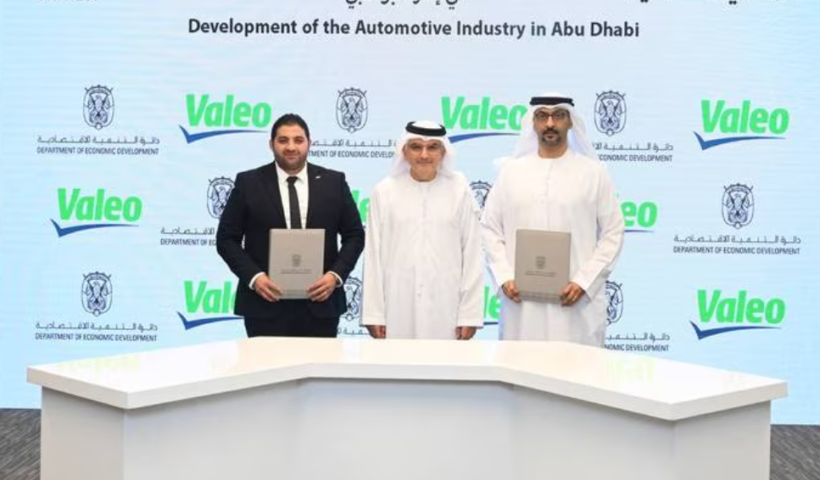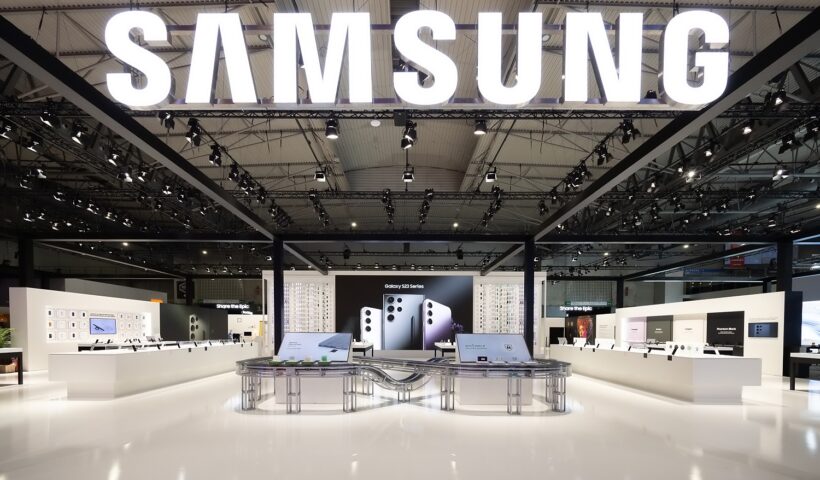The Abu Dhabi Department of Economy and Economic Development and Egypt’s Valeo have reached a preliminary agreement that aims to develop the mobility business and support sustainability initiatives in the UAE capital.
The department revealed on Friday that Valeo will be able to design and manufacture components for electric and self-driving automobiles in the emirate as a result of the agreement.
It aims to help the neighborhood’s start-up electric vehicle industry and the community that produces industrial solutions in addition to enlarging existing development zones.
In accordance with our aspirations to make sure that development, sustainability, and cutting-edge technologies work hand in hand in all sectors of our socioeconomic development, this cooperation to create smart mobility and establish a technological center for electric, autonomous automobile components in Abu Dhabi.
Smart mobility is the process of creating efficient, sustainable, and user-focused transportation systems using cutting-edge technology and based on data tactics.
The global smart mobility industry will increase at an average yearly growth rate of more than 21%, from $48.54 billion in 2022 to about $404 billion by 2032, according to data from Spherical Insights & Consulting.
According to a forecast by Mordor Intelligence, the global market for autonomous vehicles would increase from $33.48 billion this year to $93.3 billion by 2028, or a CAGR of over 23%.
As part of its initiatives to promote and incorporate sustainability measures into society as well as the economy, the UAE has tried to become a leader in smart mobility systems.
Several programs have been launched to develop autonomous services. Abu Dhabi and Dubai are “well positioned” to be at the cutting edge of the transition to fully developed smart cities thanks to this pillar.
On Yas Island, operated by TXAI, Abu Dhabi has its own fleet of autonomous taxis. TXAI offered a driverless bus service for spectator transportation during the Etihad Airways Abu Dhabi Grand Prix in November of last year.The emirate is also pressing forward with testing programs for drone deliveries.
Dubai debuted its first autonomous taxis at Gitex Global the previous year. These vehicles would be made available “in limited numbers” starting in 2023.
Dubai planned a fleet of five electric vehicles in April to help with this effort, and by 2030, it hopes to have 4,000 autonomous taxis operating there.
The first autonomous truck experiments in the UAE will be carried out thanks to a cooperation formed in December between Evocargo and Dubai South, an urban master developer focused on aviation and logistics in the emirate.
The Abu Dhabi Industrial Strategy intends to more than quadruple the size of the manufacturing industry to Dh172 billion, generate 13,600 skilled jobs, and increase non-oil exports by 143% to Dh178.8 billion by 2031. The emirate has set a capital investment goal of Dh10 billion ($2.72 billion).
Six transformative programs, including circular economy, Industry 4.0, talent development, ecosystems enablement, homegrown supply chain, and value chain development, will serve as its foundation. These programmes are all geared toward fostering growth and innovation, enhancing skills, and supporting local manufacturing.
According to him, Valeo will be able to impart its knowledge “to the highly technological and technologically advanced societies in Abu Dhabi.”



